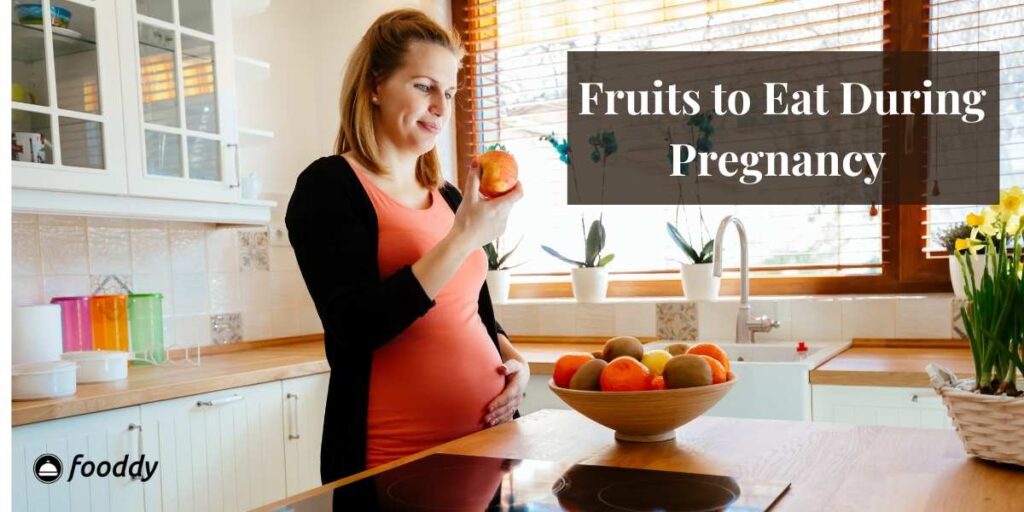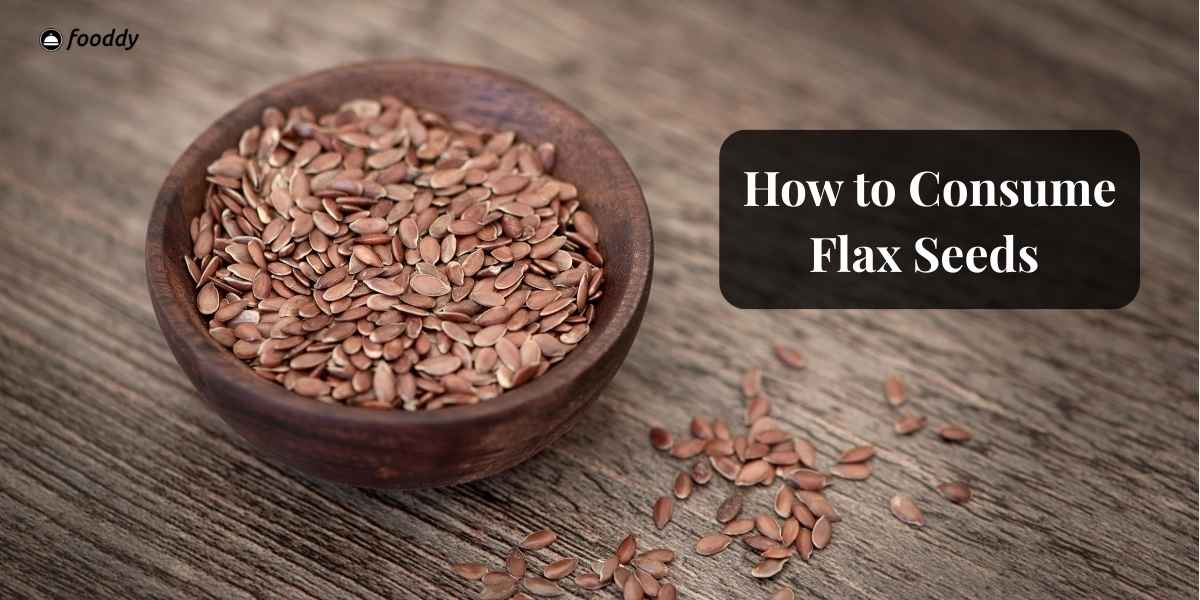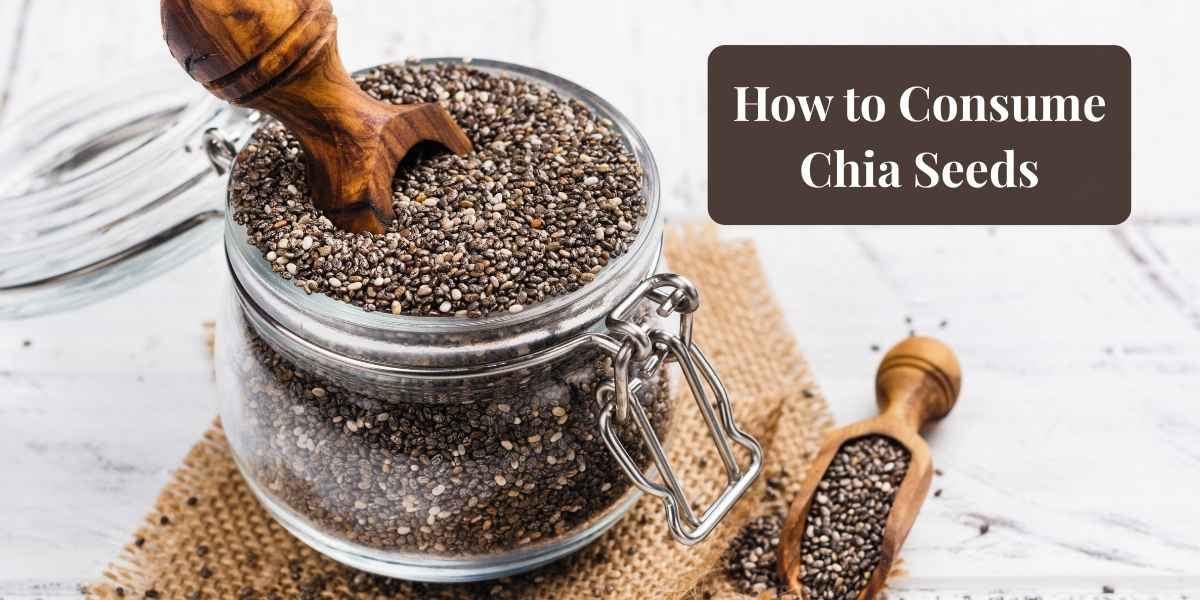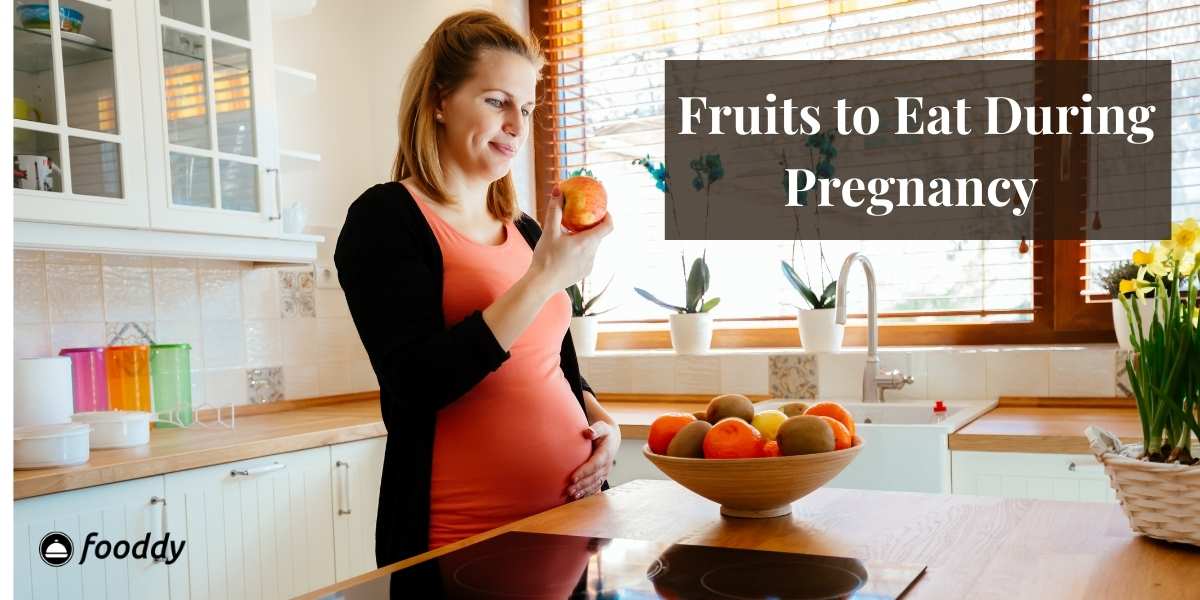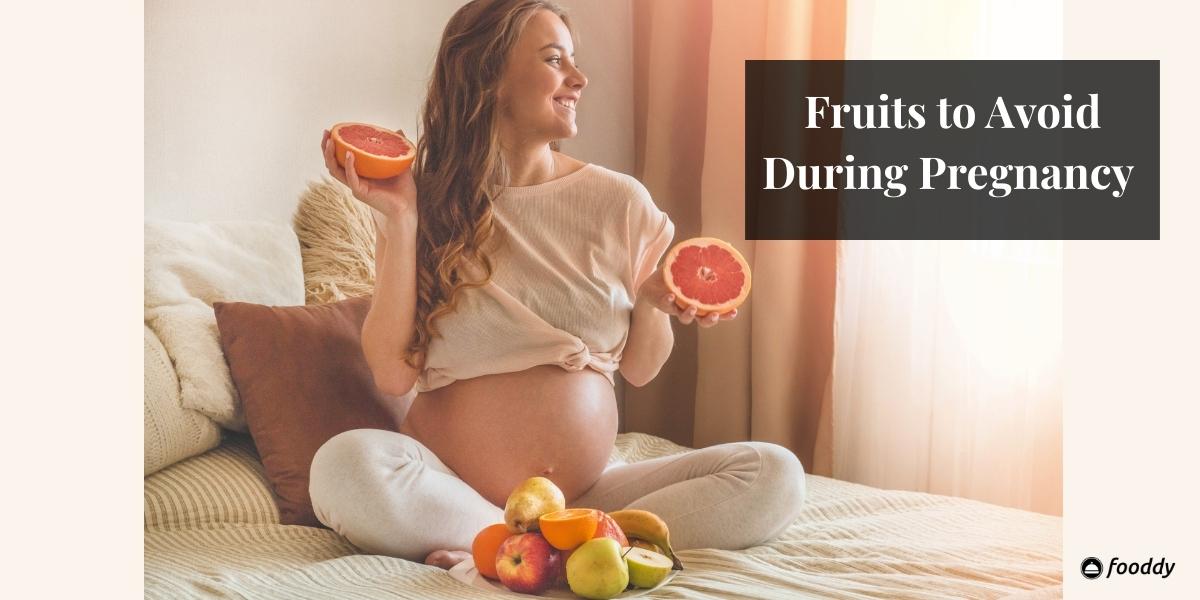Pregnancy is often described as one of the most life-changing journeys a woman can experience. It comes with a mix of joy, curiosity, and a heightened sense of responsibility. During these nine months, your body requires extra care, and every choice you make-especially regarding what you eat-directly impacts both you and your baby. Eating nutrient-rich foods is no longer just about personal health; it becomes the foundation for your little one’s growth, brain development, and overall wellbeing. This guide will take you through a carefully curated list of the Fruits to Eat During Pregnancy. We’ll discuss their benefits, how they support both the mother and the developing baby, and which fruits are particularly helpful during each trimester. That way, you’ll feel confident about adding the right fruits to your daily diet while enjoying this special phase of life in a healthy, balanced way.
Among all the food categories, fruits hold a very special place during pregnancy. They are naturally sweet, easy to digest, hydrating, and full of essential nutrients like vitamins, minerals, antioxidants, and dietary fiber. These elements not only support digestion and strengthen immunity but also keep pregnant mothers energized throughout the day. However, it’s important to understand that while fruits are highly beneficial, certain types may be more suitable during specific stages of pregnancy for maximum health benefits.
List of Top 10 Fruits to Eat During Pregnancy
When you’re expecting, choosing the right foods can sometimes feel overwhelming, but incorporating the right fruits into your diet is a simple and effective way to boost your nutrition. Here’s a handpicked list of ten fruits that are not only safe but also packed with essential nutrients known to support both your health and your baby’s growth. For example, bananas provide much-needed potassium which helps reduce pregnancy-related cramps, while oranges deliver a burst of vitamin C that aids iron absorption and strengthens your immune system. Berries, rich in antioxidants and fiber, are gentle on digestion and promote overall wellbeing. By enjoying a colorful variety of these fruits daily, you’re helping to create a nutrient-rich environment that nurtures your baby and keeps you feeling vibrant throughout your pregnancy journey.
Bananas
- Rich in potassium and vitamin B6
- Helps relieve nausea and muscle cramps
Bananas are a handy snack during pregnancy because they help ease muscle cramps common in expectant mothers, thanks to their potassium. Vitamin B6 content also makes them effective for reducing nausea, especially in the early stages.
Also Read – Fruits to Avoid During Pregnancy
Apples
- High in fiber and antioxidants
- Aids digestion and boosts immunity
Apples provide fiber, which assists digestion, something many pregnant women struggle with. Their antioxidants also give the immune system a welcome boost, helping you stay healthy throughout pregnancy.
Oranges
- Excellent source of vitamin C
- Keeps you hydrated and improves iron absorption
Oranges are refreshing and packed with vitamin C, which not only supports your immune system but also helps your body absorb iron better-a crucial benefit during these months.
Mangoes
- Rich in vitamins A and C
- Supports fetal eye and immune development
Mangoes offer essential vitamins that support your baby’s developing eyesight and immune system, plus their natural sweetness makes for a delightful, nutritious treat.
Berries (Strawberries, Blueberries, Raspberries)
- Loaded with antioxidants and folate
- Supports brain development and reduces birth defects
Berries are nutrient powerhouses, with antioxidants and folate that play a key role in your baby’s brain growth while helping lower the risk of birth defects.
Guava
- High in vitamin C and folic acid
- Boosts immunity and supports baby’s nervous system
Guava stands out for its vitamin C and folic acid content, both aiding immune strength for you and healthy nervous system development for your baby.
Watermelon
- Hydrating, rich in magnesium and lycopene
- Helps reduce swelling and morning sickness
Watermelon’s hydration and magnesium help to reduce pregnancy swelling and ease morning sickness, making it a refreshing choice during warm days.
Pomegranates
- Iron-rich and antioxidant-packed
- Supports blood flow and prevents anemia
With plenty of iron and antioxidants, pomegranates help maintain healthy blood flow and reduce anemia risks, which are common pregnancy concerns.
Avocados
- High in healthy fats, folate, and potassium
- Aids brain development and reduces leg cramps
Avocados provide healthy fats, folate, and potassium that support your baby’s brain growth and help reduce those uncomfortable leg cramps many pregnant women face.
Kiwi
- Contains vitamin K, C, and fiber
- Supports digestion and helps with blood clotting
Kiwi is rich in vitamins K and C and fiber, promoting good digestion and aiding blood clotting, important during and after pregnancy.
Tip: Always wash fruits thoroughly and choose fresh, seasonal varieties for the best taste and nutrition.
Benefits of Fruits to Eat During Pregnancy
Fruits are not only safe but essential for a healthy pregnancy. They supply a wide range of necessary vitamins, minerals, and antioxidants that support both the mother’s wellbeing and the baby’s growth. Including fruits in your daily diet helps strengthen your immune system, improve digestion, and provide hydration, all of which are crucial for a smooth and healthy pregnancy journey. Here’s how they benefit both mother and baby:
Rich in Essential Nutrients
Fruits are loaded with important vitamins such as A, B6, C, and K, along with folate, potassium, and magnesium. These nutrients play a crucial role in your baby’s growth, supporting everything from organ development to healthy bones.
Natural Hydration
Fruits like watermelon, oranges, and strawberries have a high water content, which helps keep you well-hydrated during pregnancy. Staying hydrated is key to reducing risks such as urinary tract infections (UTIs) that can be more common in expectant mothers.
Promotes Healthy Digestion
The fiber found in most fruits aids digestion and helps prevent constipation, a frequent and uncomfortable issue many pregnant women experience. Fiber also promotes a healthy gut environment.
Boosts Immunity
Vitamin C and antioxidants present in fruits boost your immune system, helping you fend off common colds and infections that your body may be more susceptible to during pregnancy.
Reduces Pregnancy Discomfort
Certain fruits can ease common pregnancy discomforts like morning sickness, heartburn, and fatigue. This support is especially beneficial during the challenging first trimester when these symptoms are most common.
Supports Baby’s Development
Folate-rich fruits such as berries and oranges play a vital role in reducing the risk of neural tube defects and support healthy brain and spinal cord development in your baby, making them especially important during early pregnancy.
Fruits to Eat During Pregnancy – First Trimester
The first trimester is a critical period as your baby’s major organs start to develop. During this time, many women deal with nausea and morning sickness, so it’s important to choose fruits that are gentle on the stomach and provide hydration. Here are some of the best fruits to include during these early months:
- Bananas – Easy to digest and known to soothe nausea, bananas are a comforting snack during morning sickness.
- Oranges – Packed with vitamin C and water, oranges help keep you hydrated and strengthen your immune system.
- Apples – Mild and rich in fiber, apples are great for digestion and make a quick, gentle snack.
- Pomegranate – Rich in iron, pomegranates support healthy hemoglobin levels, helping to prevent anemia.
- Berries – Loaded with folate, berries play a crucial role in supporting brain development during this stage.
Important: Avoid unripe papaya and pineapple in the first trimester, as consuming them in large amounts may trigger uterine contractions.
Including these fruits can make managing early pregnancy symptoms easier while providing essential nutrients for your baby’s development.
Fruits to Eat During Pregnancy – Second Trimester
This phase is usually when you start to feel better, with all that early sickness behind you. Your little one is growing fast now, so it’s a good plan to eat fruits that have calcium, iron, and antioxidants that help both of you stay healthy. Here are some of the best picks for these busy months:
- Mangoes – If you like something sweet and juicy, mangoes are great. They’re full of vitamins to help your immune system stay strong and keep your skin glowing as you carry your baby.
- Avocados – These are perfect if you want something creamy and filling. They’re packed with nutrients that help your baby’s brain and body develop well.
- Guava – A nicely sweet and refreshing fruit that’s good for keeping your blood sugar steady and giving your immune system a little extra help.
- Kiwi – This little fruit helps your body absorb iron better, which can keep you feeling less tired. It also keeps your tummy happy.
- Watermelon – Especially if the weather is warm, watermelon’s high water content is fantastic for keeping you hydrated and cutting down swelling.
Tip: Watch out for portions when eating sweeter fruits like mangoes and grapes, as it’s easy to overdo the sugar.
Eating fruits like these regularly can keep your energy up and help your baby grow strong during this important time.
Fruits to Eat During Pregnancy – Third Trimester
The home stretch! Your baby is growing fast now, and with that comes some of the usual late-pregnancy complaints like bloating, indigestion, and feeling wiped out. Including fruits that help keep things moving, boost your energy a bit, and keep you hydrated makes a big difference.
- Watermelon – This one’s a lifesaver for beating swelling, and it’s super refreshing when you’re feeling tired or too warm. Plus, it helps calm down acidity.
- Bananas – Easy to grab when cramps hit or you need a quick energy boost. They’re kind to your stomach, too.
- Apples – Perfect for a light snack that keeps those hunger pangs away, especially late at night. Plus, the fiber helps with digestion.
- Pineapple – It’s okay to enjoy in moderation here. Some say it helps prepare your body by softening the cervix, but it’s best to ask your doctor how much is right.
- Avocados – Creamy and filling, avocados bring good fats your baby needs for brain development. Bonus-they can ease those annoying leg cramps.
Just take it easy with the sweeter fruits like pineapple and try not to overdo it. Eating these fruits regularly can help you feel better and keep your baby growing strong through these last few months.
Conclusion for Fruits to Eat During Pregnancy
Fruits are an important part of eating well during pregnancy. They taste great and help you get the nutrients you and your baby need every day. From helping with morning sickness to making digestion easier and giving you energy, fruits do a lot of good.
Make sure to:
- Choose fresh fruits that are in season-they’re usually tastier and packed with nutrients
- Try a variety of fruits so you get different vitamins and minerals
- Wash your fruits well before eating to keep away any germs or chemicals
- Don’t eat too much fruit at once to avoid too much sugar in your body
No matter if it’s your first few weeks or you’re close to having your baby, eating the right fruits can help you feel stronger and healthier as you go through pregnancy.
FAQs
Q1. Can I eat all fruits when pregnant?
Ans:- Most fruits are fine, but just skip unripe papaya and don’t go crazy with pineapple or grapes in the beginning. If you’re unsure, ask your doctor-it’s always better to be safe.
Q2. How many fruits should I have each day?
Ans:- Around 2 to 4 servings usually work, but listen to your body and what else you’re eating too.
Q3. Is eating fruit at night okay?
Ans:- Sure! Bananas, apples, or ripe papaya are great bedtime snacks. Just avoid citrus or really sweet fruits if they bother your stomach.
Q4. What about drinking fruit juice?
Ans:- Eating fruit is better, but if you want juice, go for fresh 100% juice without added sugar and keep it to a small glass a day.
Q5. Can fruits help if I feel sick in the morning?
Ans:- Yes, fruits like banana, apple, and citrus can help you feel less nauseous and keep you hydrated.
Q6. Can I eat watermelon during pregnancy?
Ans:- Definitely! Watermelon is great for staying hydrated, full of nutrients, and can help with swelling and heartburn, especially later on.
Q7. Which fruit is good for the baby’s brain?
Ans:- Avocado, berries, and oranges are great choices because they have stuff that helps your baby’s brain grow.

